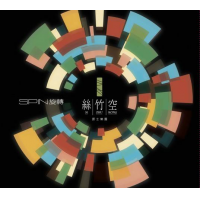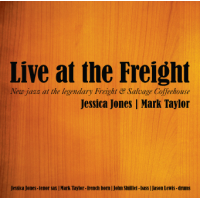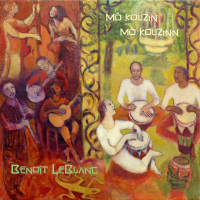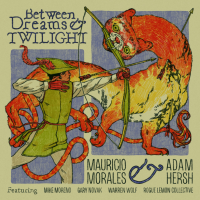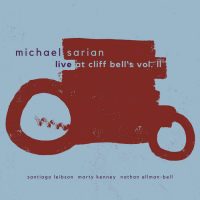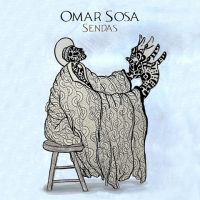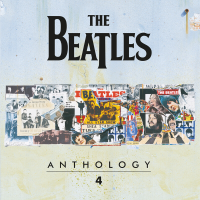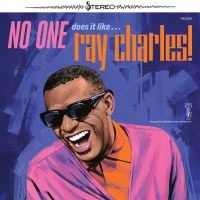Home » Jazz Articles » Album Review » Sizhukong: Sizhukong: Spin
Sizhukong: Sizhukong: Spin
Paper Eagle (Sizhukong Music, 2009) didn't radically alter the blueprint but it did take things up a notch, with the band further exploring the crossroads between Taiwanese/Chinese and African music, and adding certain Latin flavors to the brew. The addition of Dutch double bassist/composer Martijn Vanbuel—with original electric bassist Toshi Fujii switching to drums/percussion—brought slightly greater jazz sensibility to the music. Peng's soloing was less prominent, playing more the role of conductor and imbuing the music with Duke Ellingtonian grace. Greater use of Chinese percussion added punch and Oriental spice to the arrangements, but otherwise the band's second CD was an outstanding continuation and refinement of what had come before.
With Spin, Sizhukong again draws from traditional Taiwanese/Chinese folk traditions and jazz. Peng's compositions, as ever, are informed by nature, folk tales/poetry and history's contours. However, the band steps outside its comfort zone in a several important ways. Electronic keyboards and electric guitar debut and are to the fore, bringing a jazz-fusion/jazz-rock hue to several compositions and there's perhaps more jazz-inspired improvisation than on the band's previous albums. Vanbuel's acoustic bass has been replaced by Fujii's electric bass, and the drum kit (on which Fujii doubles) is a more dynamic presence than before. Sizhukong may have begun as a fusion of musical traditions, but on Spin it's also increasingly about a fusion of contrasting textural elements.
Hwa Jou Shieh's electric guitar swiftly announces Sizhoukong's latest direction just twenty seconds into "Drunk in Duma," a compelling jazz-fusion adventure characterized by tight unison lines and call-and-response between traditional Chinese wood/string instruments and keyboard and electric guitar. The arrangement—dense and spacious in turn—points to keyboardist Joe Zawinul/Weather Report's influence. Shieh's biting, rock-edged soloing contrasts with Peng's jazz-funk approach, which sounds plenty inspired by keyboardist Herbie Hancock. This highly melodic, Taiwanese opera take on an original Japanese tune—given heavy Zawinul/Hancock accents and searing electric guitar—perfectly represents Sizhukong's all-embracing musical philosophy.
Regardless of tempo or the variation in density of orchestration, melody is absolutely central to Peng's compositions; these are memorable tunes all. A gentle bass ostinato and guitar introduces the lilting melody of "Journey on the Silk Road," which highlights the exceptional lyricism of flautist Chihping Huang. Alex Wu's nuanced tabla, frame drum and shaker accompaniment infuses an Indian vein in a seductive tune that flows languidly, like an ancient spice caravan on a journey from east to west.
Mouth harp and deep bass introduce the atmospheric "The Story of Time," an arresting coming together of Taiwanese folk-tale and traditional Belguan opera. Half spoken, half sung, Wu and guest vocalist Llid Kaolo's combined performance is powerful and haunting. Llid's softly spoken intro lays bare the poetic music of the aboriginal Amei language. Chihping Huang's sympathetic flute soars like a bird riding the warm currents.
"To Rain"'s somewhat orchestral intro evokes the Yellowjackets, and features Wu's two-stringed erhu, Huang's recorder and Chihling Chen's raun (lute). This melodic number, underpinned by Peng's dancing piano lines veers into guitarist Pat Metheny's 1990s Latin terrain when Llid and Hwa Jou's vocals take off. Chen's lute solo on "Fengyang 3.0" is perhaps her jazziest improvisation on record to date, though her instrument's presence on Spin is much reduced compared to Paper Eagle. The evolution of this Sizhukong standard charts the changing dynamics of the band; from a piano and mandolin duet in 2007, to a subtly electronic and tabla-colored version in 2012, with a notable keyboard improvisation from Peng underscoring the band's more modern aesthetic.
Sizhukong's ever-present bridge between past and present is perhaps most simply and eloquently exemplified by "The Song of Guan"—an arrangement for solo bass. Fujii's lyrical electric bass conveys the bending blues notes of the Chinese zither, on a tune inspired by a 1000-year-old poem dating from the Tang dynasty. This segues into "Bona Bona"—inspired by Cameroonian bassist/singer Richard Bona—a beautifully spare union of bass, guitar and bawoo—a plaintive reed-pipe from southwestern China with an almost clarinet-like timbre. Wu's "Memoirs of Peking Opera" celebrates all Sizhukong's defining elements; striking melody, shifting tempos, tradition and modernity, and, in Shieh's ripping electric guitar solo, new direction.
Spin marks the boldest move that Sizhukong has yet made. If the band's first album ruffled the feathers of the purists in Taiwan, then Spin will have them huffing and puffing some more. Peng's sense of adventure is steering the quintet into exciting new territory, and with all sorts of collaborations now evidently possible, there's the likelihood of greater adventures yet to come.
Track Listing
Drunk in Duma; Journey on the Silk Road; Fengyang 3.0; To Rain; The Song of Yang Guan; Bona Bona; Memoirs of Peking Opera.
Personnel
Sizhukong
band / ensemble / orchestraYuwen Peng: compositions (1-7); keyboards (1, 3-5, 8); Alex Wu: erhu (1, 5, 8), percussion (2-4, 8), voice (3); Toshi Fujii: electric bass (1-8), cymbals (2-3), drums, percussion (5); Chihping Huang: dizi (1, 5, 8), xiao (1-3), EWI (2), bawoo (7); Suyeh Llao: drums (1, 8); Tesheng Huang: Chinese cymbals (1, 8); Hwa Jou Shieh: electric guitar (1-2, 5, 7-8), acoustic guitar (3), voice (5); llid Kaolo: voice (1, 5, 8), mouth harp (5); Chihling Cheng: ruan (4-5); Chuunlin Yeh: Chinese cymbals (8).
Album information
Title: Sizhukong: Spin | Year Released: 2012 | Record Label: Sony Music
Tags
About Sizhukong
Instrument: Band / ensemble / orchestra
PREVIOUS / NEXT
Support All About Jazz
 All About Jazz has been a pillar of jazz since 1995, championing it as an art form and, more importantly, supporting the musicians who make it. Our enduring commitment has made "AAJ" one of the most culturally important websites of its kind, read by hundreds of thousands of fans, musicians and industry figures every month.
All About Jazz has been a pillar of jazz since 1995, championing it as an art form and, more importantly, supporting the musicians who make it. Our enduring commitment has made "AAJ" one of the most culturally important websites of its kind, read by hundreds of thousands of fans, musicians and industry figures every month.


